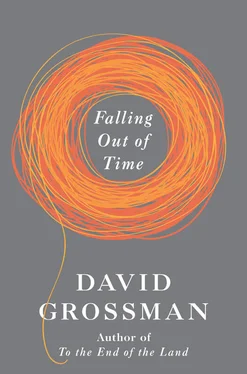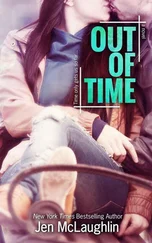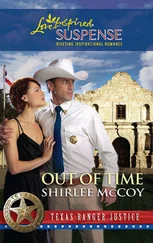came to singe
my limbs.
I was touched,
I was blighted
by the frost
of randomness.
TOWN CHRONICLER: She forcibly shuts her mouth with both hands. Her great black eyes fill with terror. If you ask me, Your Highness, the poor woman has not the slightest comprehension of the words that leave her lips! Incidentally, I think she truly believes that if I only came and touched her, this false spell would be lifted. But it has been almost thirteen years since I touched another person. Now I must hurry, Your Honor: it is almost midnight, and I cannot be late for my wife.
TOWN CHRONICLER’S WIFE:
A clear corpuscle
glowed inside me, a golden
granule gleamed. I knew that
it was me, my soul,
my core, it was the purpose
of my being. Born
with me, I thought, and so
would die with me—
I did not know that I might live
long after it, that I would be
diaspora,
deciduous.
A liar, too—
the kind who easily,
no eyelid batted,
dared to speak of:
me.
WOMAN WHO STAYED AT HOME:
I sank my teeth
into my flesh. I did not
go. I dwindled
like a candle.
Only he still lay
awake in me: now seeing,
now remembering, now crossing
through a hell. Now quiet
with his son. Or
laughing. Tasting
crumbs of happiness
with him—
Do not breathe,
or think
of what he sees, what he recalls,
what ails
his heart — wounded inside him.
Inside me
an extinguished eye lit up,
the eye of a half-devoured beast
in its predator’s mouth.
What does he see
there, I asked, I screamed, I slammed
my head against the wall, and how
swept up, how peeled away, and how
far has he gone
toward the darkness?
WALKING MAN:
I seem to understand
only things
inside time. People,
for example, or thoughts, or sorrow,
joy, horses, dogs,
words, love. Things that grow
old, that renew,
that change. The way I miss you
is trapped in time as well. Grief
ages with the years, and there are days
when it is new, fresh.
So, too, the fury at all that was robbed
from you. But you are
no longer.
You are outside
of time.
How can I explain
to you, for even the reason is
captured in time. A man from far away
once told me that in his language
they say of one who dies in war,
he “fell.”
And that is you: fallen
out of time,
while the time
in which I abide
passes you by:
a figure
on a pier,
alone,
on a night
whose blackness
has seeped wholly out.
I see you
but I do not touch.
I do not feel you
with my probes of time.
CENTAUR: Take you, for example, Town Chronicler, or whatever it is you call yourself. You’re a real sight for sore eyes, you are. Get a load of that bowler hat, boss! And the tie, and the satchel, and the pencil mustache— mwah ! It’s just a shame you look so bedraggled and filthy, like some kind of tramp. And also — I’m sorry — but you reek like a fresh pile of droppings. Other than that, though—
All right, all right, no need to get in a huff! What are you talking about? Insulting a civil servant? Hah! Lighten up, pencil pusher, I’m just joking around. Besides, you should know that it’s all from jealousy. Yes, write that down in the biggest letters you can make: The centaur is jealous of the clerk!
No, you tell me: Isn’t it incredibly fortunate that you, as part of your job, and undoubtedly in return for a handsome salary, can spend as much time as you want peering into other people’s hells, without dipping so much as your pale little pinkie inside them? Think about it! What could be more titillating than someone else’s hell? And besides, I’m sure you’ll agree that secondhand pain is far better than firsthand. Healthier for the user and also more “artistic” in the sublime — I mean, the castrated — sense of the word. Take you, for example: it’s been at least a week now since you’ve been coming here, just by chance, walking past my window three or four times a day — yesterday it was five, but who’s counting — hurrying about your business, lost in thought, when suddenly: Bam! A screeching halt! A surprised blink! What do we have here? Why, it’s a centaur! And a bereaved one, at that! Two for the price of one! I’d better quickly put on an expression of tender sorrow and commiseration, and in a flash I’ll dip my silver-plated quill in its black ink, and one-two-three, I’ll ask about the son, ask about the son, ask about the son! And if the subject’s answers are not satisfactory, I won’t give up, no, I won’t give up, I’ll come back in an hour or two, and tomorrow morning again, and I’ll ask about the son again, and I won’t relent even if the subject grits his teeth and bites his tongue until it hurts, and please tell me what he was like as a baby, what he liked to eat, what he built with Legos, which lullabies you sang to him … Well, listen up, you black-inked tick: even the inquisition’s tax assessors didn’t torture people like this! And then all of a sudden, psshh ! The town clock strikes, ding-dong, see you later, thank you very much, it’s been a pleasure, the quill goes back in its case, the notebook in its folder, and the pencil pusher is on his way home, open parenthesis, what does he care that I’m sitting here bleeding, ripped apart, slaughtered to pieces, close parenthesis, clerko hums a happy tune and ponders the leg of lamb waiting for him in the oven, and probably the legs of some lady or other … What? Hey? Did I grab you by the what’s-it or didn’t I?
TOWN CHRONICLER: Enough is enough, Your Highness! I have reached the end of my tether! From here on out, your town chronicler adamantly refuses to meet with this despicable creature. You may kill me, my lord, but I shall not go back to him !
WALKING MAN:
I heard the voice
of a woman
coming from the town:
That every man is
an island ,
that you c-c-cannot
know
another
from within—
I persist in trying: I resuscitate,
awaken, endlessly clone
cells of yours that still
live in me, the final imprints
of being that have not yet
faded from the tips of my sensations—
the touch of your child-skin,
your voice still thin
and secretive, yet lashing out already
with a sharp salvo of irony, an impression
of your torso moving,
passing quickly,
sliding (how happy I was
when they said
you walked like me).
The corner of your mouth
tugs with a fragile flash
of doubt—
I continue, I preserve,
I treasure
and revive the child
you were, the man
you will not be.
You may laugh: What is this, Dad,
one-human-subject research?
I shrug my shoulders: No, it is a
life’s
work.
Look, I suddenly exclaim,
I will create you,
or at least
one life-twitch
of you, and why not,
damn it, why
give up?
I’ve done it once before,
and now I want
you
so
much
more.
WOMAN WHO STAYED AT HOME:
I drew
all the blinds. I dimmed
all the lights. My skin grew covered
with wounds and blisters. Dark
silence, dark
silence, days
and nights I was
inside it, an overdue
embryo, ossified,
conceived by the tragedy
in its senescence.
Until I emerged
from my torpor, and a voice
was conjured up from deep
inside me: I am
Читать дальше











